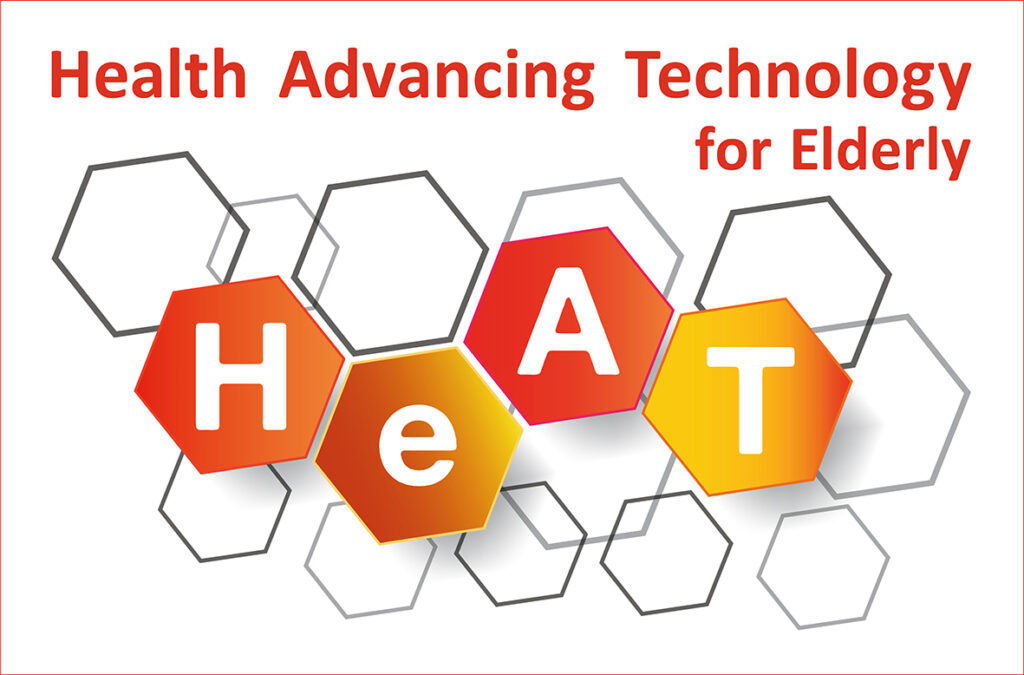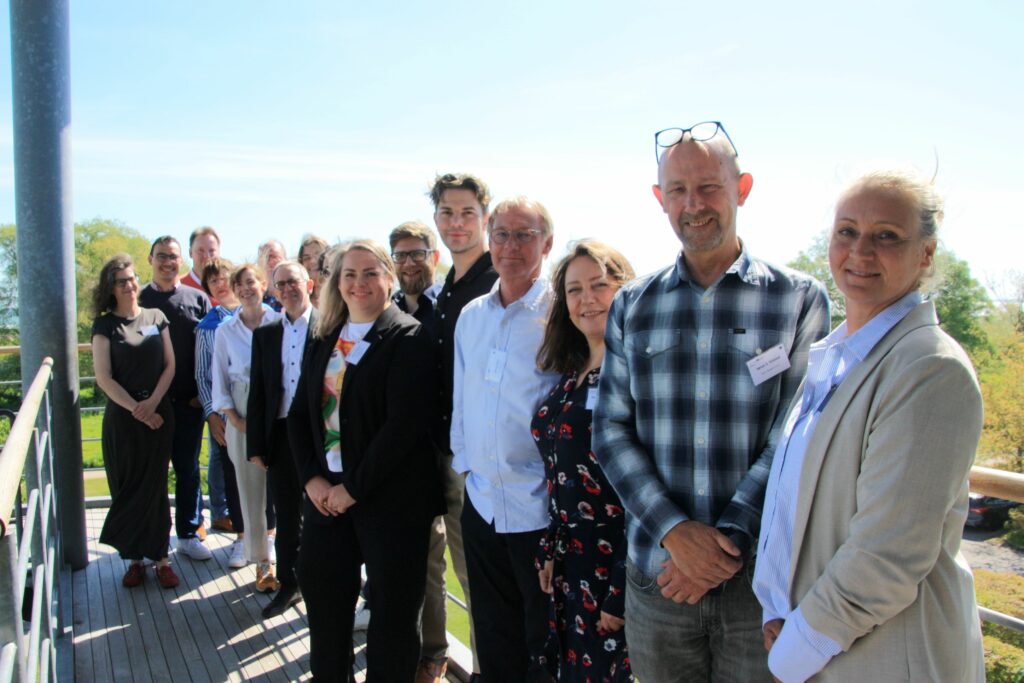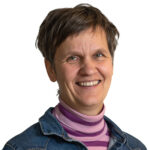

HeAT. Health Advancing Technology for Elderly
The overall goal of the project is to improve senior citizens’ access to an increasingly digital healthcare system. The HeAT project is about innovative digital solutions and processes in healthcare that can help maintain a high standard of healthcare and treatment, especially for older patients, while helping to keep healthcare costs down.


About the project
Demographic development brings a number of challenges, such as increasing pressure on healthcare systems in both our countries. Increasing life expectancy and the growing number of elderly people means a need for more medical care and treatment, putting pressure on the capacity of our healthcare systems. Innovative digital solutions and processes in healthcare can not only help keep costs down, but can also help maintain a high standard of healthcare and treatment. Unfortunately, senior citizens in particular find it difficult to use these digital solutions (due to difficulties in permanently adapting to new technologies, and also due to declining neurocognitive and motor skills in old age). This is problematic as this group is growing and at risk of disease where treatment could be facilitated and improved by technology. This project therefore focuses on how to improve the treatment and quality of life of elderly citizens in the program region using health promoting technologies. The aim is to investigate the needs and challenges of this group and develop technological solutions tailored to their specific needs. A cross-border approach offers the opportunity to approach the problem from two perspectives and develop the best solutions together. Here, the development of new solutions has a strong focus on implementation and sustainable anchoring. To support broad implementation, the project focuses on some of the most common diseases in the program region: cancer, diabetes and epilepsy. In this way, there are large patient groups that will benefit from the project. The knowledge and experience gained in this project will be compiled and formulated into an action plan to improve the use of health technology among the elderly in several areas of the healthcare sector. The overall goal of the project is to improve senior citizens’ access to an increasingly digital healthcare system. It will focus on how healthcare initiatives can be developed or adapted to suit their needs. It will thus help prevent further inequalities in health and treatment and even reduce current inequalities. It is a general challenge that the largest patient groups (the elderly) find it difficult to use new technologies. The project aims to raise awareness of this challenge and focuses on how the population in Germany and Denmark can benefit from these technologies. The focus is on the development and use of new digital technologies, cross-border solutions and the involvement of patients and citizens.






Project partners
- Sjællands Universitetshospital, Forskningsenheden i Staben – Research Unit (Leadpartner)
- Sjællands Universitetshospital, Neurologisk Afdeling
- Sjællands Universitetshospital, Plastikkirurgisk og Brystkirurgisk Afdeling
- Vejle Sygehus, Onkologisk Afdeling
- Universitätsklinikum Schleswig-Holstein, Klinik für Strahlentherapie
- IKE – Institut für Krebsepidemiologie
- UKSH – Akademie
- Malteser St. Franziskus Hospital, Department for Radiotherapy
- NEXTLABEL OHG
Network partners
- Ärztekammer Schleswig-Holstein
- Daheim Pflegedienst GmbH
- Schleswig-Holsteinische Krebsgesellschaft
- Life Science Nord
- Hansestadt Lübeck
- Universitätsklinikum Schleswig-Holstein, Lungenkrebszentrum
- Helios Klinik Schwerin, Klinik für Hämatologie
- Helios Klinik Schwerin, Klinik für Strahlentherapie
- Romanow Institute, Ukraine
- Steno Diabetes Center
- Epilepsiforeningen
- Danish Life Science Cluster
- Danmarks Tekniske Universitet
- Aarhus Universitet
- OAK design
The project is co-financed by the European Union.
